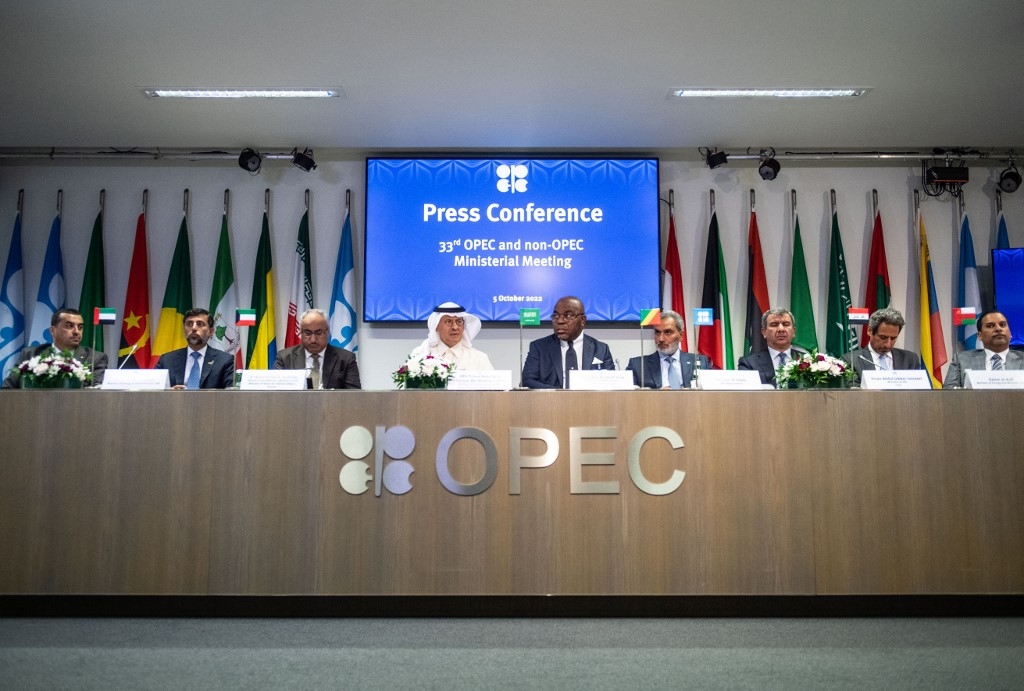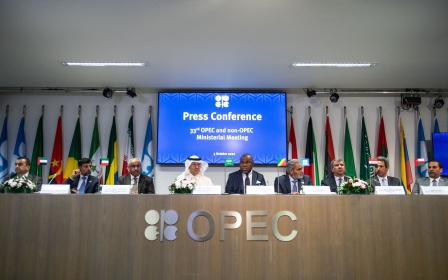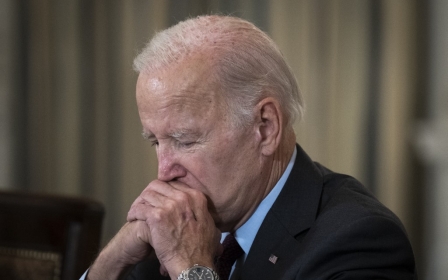Opec+ row: Bahrain, Oman insist consensus on output cut after 'Saudi pressure' claim

Bahrain and Oman said on Sunday that the decision by Opec+ to cut oil production was made by "consensus" after Washington claimed Saudi Arabia pressured smaller countries in the cartel into agreeing to the cut.
Manama released a statement on Sunday saying that it backed the decision to cut oil production after "consensus among all member states".
"The decision was made following specialised technical studies related to global oil market developments," said Bahrain's special envoy for climate affairs, Mohamed bin Mubarak bin Daina.
Oman released a similar statement on Sunday, stating that Opec decisions are based on "technical studies" and "economic considerations".
"The recent decision of Opec+ to cut production is in line with its previous decisions in terms of its reliance on market data and its variables, which was important and necessary to reassure the market and support its stability," Oman's energy ministry said on Twitter.
New MEE newsletter: Jerusalem Dispatch
Sign up to get the latest insights and analysis on Israel-Palestine, alongside Turkey Unpacked and other MEE newsletters
"The working mechanisms of the Opec+ group require that its decisions be taken by consensus and unanimity of all member states."
These latest interventions come after relations between Saudi Arabia and the United States hit an all-time low.
With energy prices rising following Russia's February invasion of Ukraine, Washington has lobbied members of the Opec+ oil cartel, particularly Saudi Arabia, to increase production.
But Opec+ last week agreed to cut oil production by two million barrels per day, which could raise global oil prices.
Washington pushed back on the move and described the decision to cut oil production as a politically motivated move favouring its foe, Russia.
"In recent weeks, the Saudis conveyed to us - privately and publicly - their intention to reduce oil production, which they knew would increase Russian revenues and blunt the effectiveness of sanctions," White House National Security Council spokesman John Kirby said on Thursday.
He added that other Opec members told the US privately they disagreed with Riyadh's decision, "but felt coerced to support Saudi's direction".
Riyadh "totally rejected" Washington's claims on Thursday and said its decision was based on the economic interests of the cartel's members and was not politically motivated.
Middle East Eye delivers independent and unrivalled coverage and analysis of the Middle East, North Africa and beyond. To learn more about republishing this content and the associated fees, please fill out this form. More about MEE can be found here.





